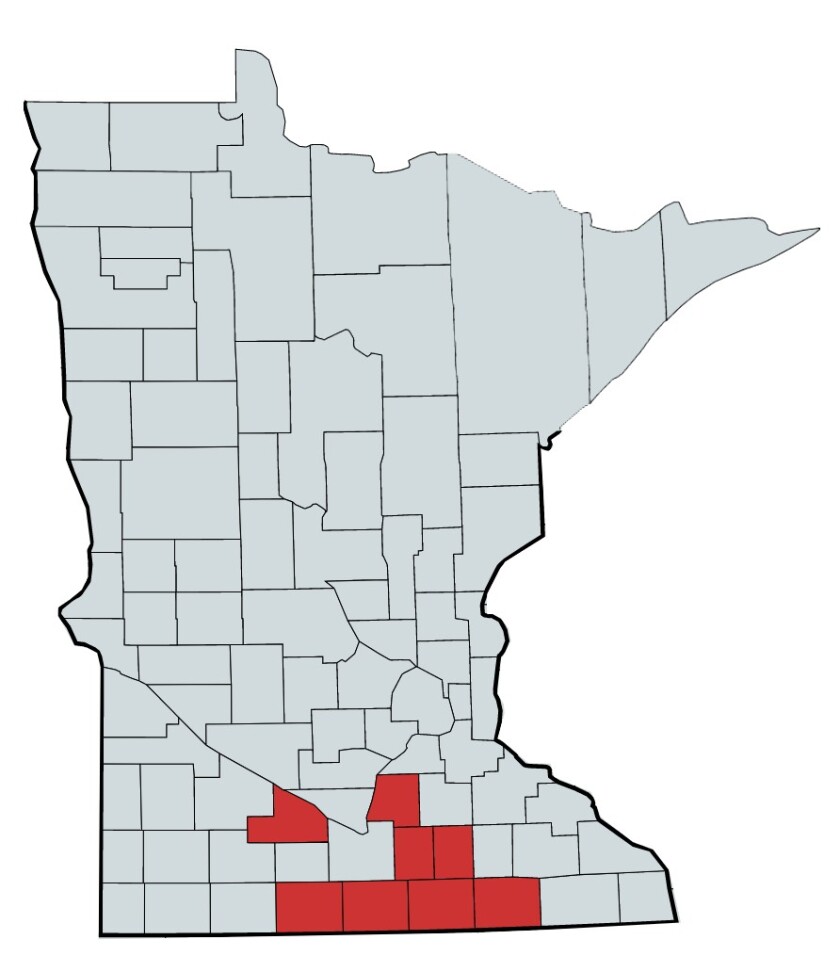SAINT PAUL — The Minnesota Department of Transportation (MnDOT) has been awarded $3.4 million in federal grant funding, which officials plan to use to purchase six electric buses and supporting infrastructure by 2025.
Sens. Amy Klobuchar and Tina Smith announced Tuesday that the Federal Transit Administration had awarded MnDOT over $3.4 million in federal funding to strengthen public transportation infrastructure and efficiency on lines serving rural Minnesota.
ADVERTISEMENT
The funds came specifically from the FTA’s Buses and Bus Facilities grant program, which provides resources to help communities modernize their bus fleets and facilities by supporting the purchase of more energy-efficient public transit vehicles. The FTA program was boosted by part of the $5.5 billion Bipartisan Infrastructure Law.

With that funding, MnDOT recently announced plans to purchase six all-electric buses. Two will be issued to Heartland Express/Brown County Human Services in New Ulm, and two will be sent to Minnesota River Valley Transit for their St. Peter and Le Seuer services. The remaining buses will be distributed to an Owatonna and a Fairmont service.
The new electric buses will replace six aging gas-powered buses which travel an estimated 173,300 miles annually, consuming over 30,000 gallons of fuel.
“Deploying battery electric buses in place of fossil fuel vehicles will reduce energy consumption and harmful emissions, including greenhouse gasses and particulates,” said Amber Dallman, assistant director for MnDOT’s Transit Programs and Implementation. “Public transit is an important part of our transportation system. Many people in rural areas rely on transit to access jobs, shopping and healthcare. This project helps us make service improvements while working to reduce emissions.”
But MnDOT can’t reliably run electric buses without having the infrastructure for it.
The grant funding, along with a $425,196 local match from the department, will also cover charging equipment, tools, related infrastructure, training and administrative support. Both agencies receiving a pair of buses will be responsible for the local match for the second vehicle, estimated at roughly $45,000 each.
With hundreds of thousands of rides provided annually on public transit options across Greater Minnesota — excluding the Twin Cities metropolitan area — Klobuchar said the modernization of buses can make a real difference to the state.
“Investments in public transit help reduce traffic and make it easier for Minnesotans to get to school, work, and other destinations,” Klobuchar said. “This federal funding will make a real difference in rural communities across our state, modernizing buses and bolstering transit efficiency so Minnesotans can reliably get around. I’ll keep pushing for resources to ensure public transit is safe and accessible for all Minnesotans.”
ADVERTISEMENT
Echoing Klobuchar, Smith noted it could also improve air quality and combat climate change.
“This funding will help modernize public buses and public transit facilities in Greater Minnesota while improving air quality and helping combat climate change,” Smith said. “I am proud of our work to help secure these grants and will continue working to support public transportation across Minnesota.”
MnDOT said planning for acquiring the buses will continue throughout the remainder of 2022, with infrastructure in place by 2024 and electric buses on the roads by 2025.














